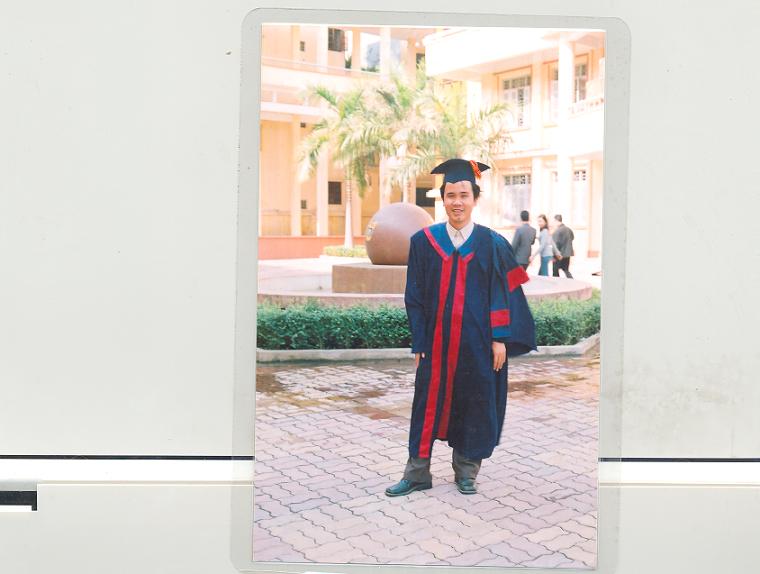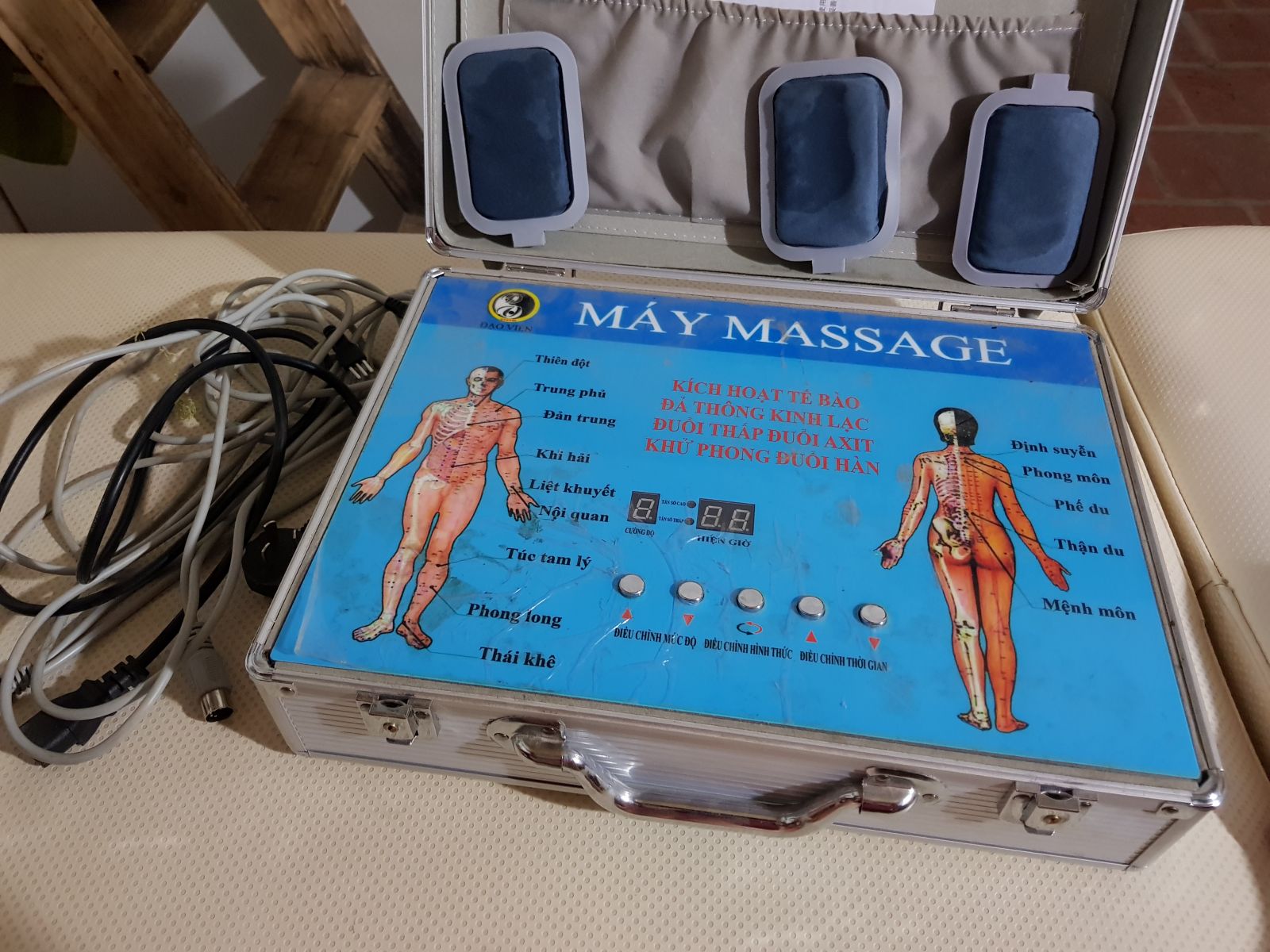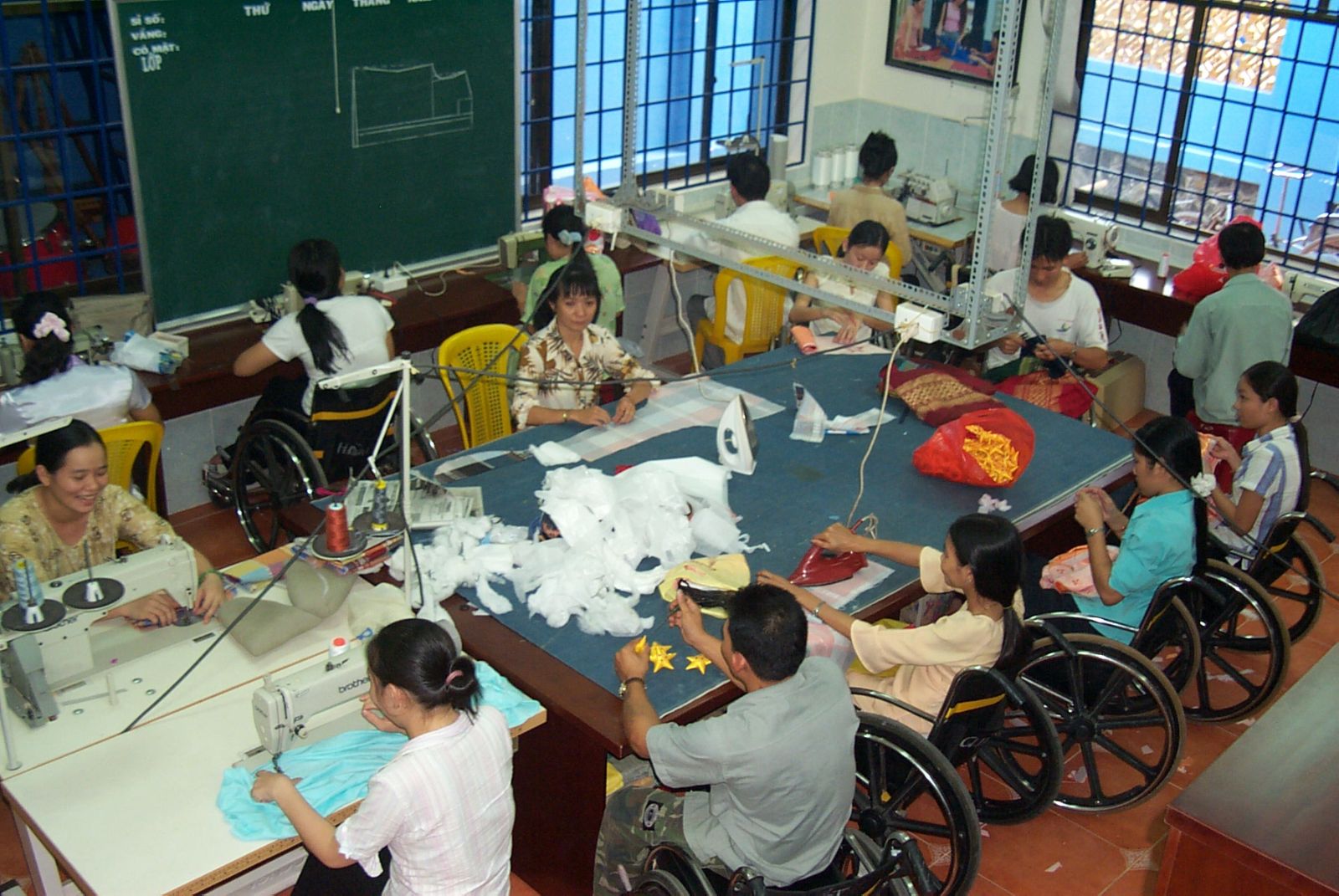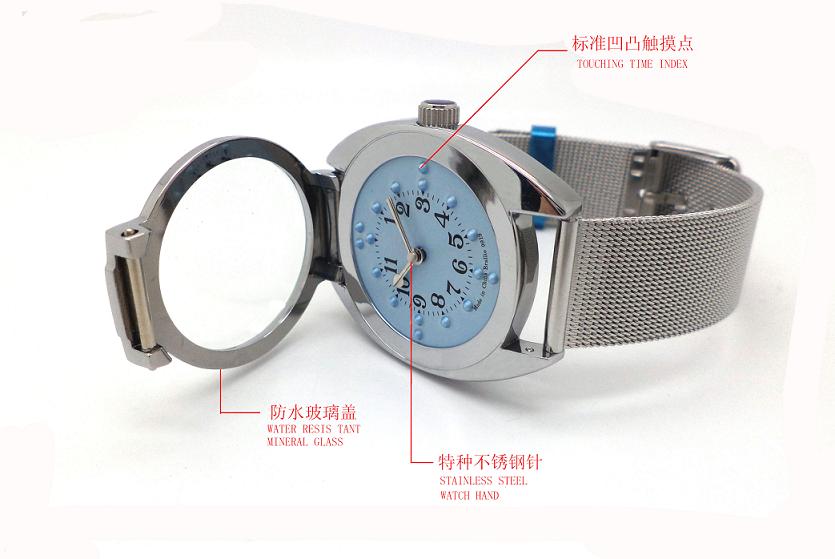tin tức nổi bật
-
 Hoàng Xuân Hạnh - Hoàng Kim: Doanh nhân người khiếm thị được biểu dương năm 2018
Hoàng Xuân Hạnh - Hoàng Kim: Doanh nhân người khiếm thị được biểu dương năm 2018
-
 Tôi mách bạn 6 Giải pháp hàng đầu để trở thành chuyên gia trong trị liệu: chữa bệnh và làm đẹp
Tôi mách bạn 6 Giải pháp hàng đầu để trở thành chuyên gia trong trị liệu: chữa bệnh và làm đẹp
-
 Hoàng Kim Massage thông kinh lạc toàn thân thải độc tố cơ thể, phục hồi sức khỏe, thổi bay những cơn đau bằng Công nghệ điện sinh học DDS
Hoàng Kim Massage thông kinh lạc toàn thân thải độc tố cơ thể, phục hồi sức khỏe, thổi bay những cơn đau bằng Công nghệ điện sinh học DDS
-
 Tẩm quất người mù Hoàng Kim tổ chức lớp Tập huấn kỹ thuật massage làm đẹp da mặt, massage giảm mỡ bụng cạo gió, giác hơi ống trúc cho nhân viên
Tẩm quất người mù Hoàng Kim tổ chức lớp Tập huấn kỹ thuật massage làm đẹp da mặt, massage giảm mỡ bụng cạo gió, giác hơi ống trúc cho nhân viên
-
Góp máy tính cho người khuyết tật
-
 Chương trình tài trợ 1000 máy xông hơi cho thành viên hội người mù việt nam
Chương trình tài trợ 1000 máy xông hơi cho thành viên hội người mù việt nam
-
.jpg) Những ngón tay dệt nên thần thoại
Những ngón tay dệt nên thần thoại
-
 Quyển sách: Món ngon ngày tết
Quyển sách: Món ngon ngày tết
-
 Giám đốc Trung tâm Hoàng Kim được ghi nhận là thành viên tích cực của Hiệp hội thương mại điện tử Việt Nam (năm 2012)
Giám đốc Trung tâm Hoàng Kim được ghi nhận là thành viên tích cực của Hiệp hội thương mại điện tử Việt Nam (năm 2012)
-
video người mù vượt qua bóng tối (P1) (năm 2012)
-
 Giới thiệu 2: Đĩa âm nhạc tẩm quất người mù Hoàng Kim
Giới thiệu 2: Đĩa âm nhạc tẩm quất người mù Hoàng Kim
-
Tuyển dụng nhân viên làm tẩm quất ở Hoàng Kim
-
 Người giàu không ở... hai con mắt
Người giàu không ở... hai con mắt
-
Biển tẩm quất người mù bị trịch thu vì ảnh hưởng đến làng văn hóa
-
 Những ngón đàn xuyên suốt màn đêm
Những ngón đàn xuyên suốt màn đêm
-
.jpg) Hoàng kim trước thềm xuân mới.
Hoàng kim trước thềm xuân mới.
-
 Massage của người khiếm thị từ góc nhìn của một người “ngoại đạo”
Massage của người khiếm thị từ góc nhìn của một người “ngoại đạo”
-
 Xoa xát mắt để phòng cận thị và hoa mắt ở tuổi già
Xoa xát mắt để phòng cận thị và hoa mắt ở tuổi già

UNIT 33: Word order (trật tự từ)
Topic 20: Health and sickness
- Grammar
- Word order in positive sentences
- Subject + verb + object
I speak English. She speaks French.
- Subject + auxiliary + infinitive verb + object
I can speak English. She can speak French.
- Subject + (auxiliary / modal) + verb + object1 + object2 +time/place
I will tell you the story tomorrow.
- Word order in negative sentence.
Subject + auxiliary / modal verb + not +...
- Examples:
- Those boys can’t swim.
- I am not listening to him now.
- Word order in questions
- Yes / no question:
- Positive question: auxiliary / modal verb + subject + infinitive verb + object …
Examples:
- Do you speak French?
- Can you tell me how to get to the bus station?
- Will you do it?
- Negative question: auxiliary / modal + not + subject + infinitive verb + object …
Examples:
- Don’t you go to school today?
- Aren’t you playing piano as usual?
- Alternative question: use “or”
Examples:
- Will the meeting start at five OR at six?
- Is this Lam’s OR yours?
- Question word:
Examples:
- What are you doing?
- Where will you go tomorrow?
- Word order in exclamation.
What + a / an + (adjective) singular / countable noun (+ subject + verb)
Examples:
- What a nice girl!
- What an awful noise!
What + plural / uncountable noun (+ subject + verb)
Examples:
- What lovely weather we are having!
- What beautiful flowers they bought!
How + adjective / adverb (+ subject + verb)
Examples:
- How cold this room is!
- How well she writes!
- Imperative or command
a) Imperative
Positive imperative: infinitive verb + please
Examples:
- Sit down, please.
- Let’s begin now, please.
Negative imperative: don’t + infinitive verb
Examples:
- Don’t worry.
- Don’t forget to pay him.
- Word order of adverbs
a) Adverbs of time (e.g.: tomorrow, yesterday...): at the end of the sentence.
I will tell you the story tomorrow.
b) Adverbs of place (e.g.: here, there, behind, above...): at the end of the sentence
I didn’t see him here.
c) Adverb of frequency
- if the sentence has one verb: between subject and verb.
Tom usually goes to work by car.
Janet never flies. She always goes by bus.
- after the verb “be”
I am never late for work.
Peter is often at school.
- if the sentence has more than one verb: before the main verb.
I can never remember anything.
They have often visited Rome.
- Watch out!
In a question or negative form, put the adverb of frequency before the main verb.
Examples:
- She doesn't often visit Europe.
- Do you usually get up early?
- Exercises
- Put the word in brackets in the right order.
- He drank wine (never).
- I could lift the heavy box (hardly).
- She is playing in the sitting room (the piano).
- They congratulated on my success (me).
- You can come everyday (here).
- Change these sentences into positive and negative questions.
- He is a scientist.
- They arrived last night.
- He shall come to see you tomorrow.
- Mr. John would like to attend our class.
- He plays football every Sunday.
- Choose the correct answer.
-
a. we went to the cinema yesterday.
b. we went yesterday to the cinema.
c. both sentences are correct. - a. we often go to the cinema.
b. we go often to the cinema.
c. both sentence are correct.
3. a. next Tuesday I will go to the cinema.
b. I will go to the cinema next Tuesday.
c. Both sentences are correct
4. a. They never go to the cinema.
b. They go to the cinema never.
c. Both sentences are correct.
5. a. She goes every Sunday to the cinema.
b. She goes to the cinema every Sunday.
c. Both sentences are correct.
6. a. I seldom am at the cinema.
b. I am seldom at the cinema.
c. Both sentences are correct.
7. a. I don't go to the cinema every week.
b. I don't go every week to the cinema.
c. Both sentences are correct.
8. a. Francis does not always go to the cinema.
b. Francis does not go to the cinema always.
c. Both sentences are correct.
9. a. Do frequently you go to the cinema?
b. Do you frequently go to the cinema?
c. Both sentences are correct.
10. a. My friends didn't go to the cinema on Friday.
b. On Friday my friends didn't go to the cinema.
c. Both sentences are correct.
III. TOPIC 20: Health and sickness
1. Questions: When you want to ask someone about their health, you can say (khi bạn muốn hỏi ai về sức khỏe của họ, bạn có thể hỏi):
- How do you feel? (bạn cảm thấy thế nào?)
- How are you feeling? (bạn đang cảm thấy thế nào?)
- Is everything okay? (mọi thứ ổn chứ?)
- What's wrong? (có chuyện gì vậy?)
- What's the matter? (có chuyện gì vậy?)
- Are you all right? (bạn ổn chứ?)
- What happened? (chuyện gì xảy ra thế?)
2. Answer: when you are not fine, you can say
(khi bạn không khỏe, bạn có thể nói như sau):
- I’m+adjective
I’m sick.
I’m not fit.
- I feel + adjective (tôi cảm thấy...)
I feel dizzy.'(tôi thấy chóng mặt)
I feel not well. (tôi thấy không khỏe)
I feel under the weather. (tôi thấy hơi ốm một chút)
- I have + a + noun (tôi bị...) + ache
headache (đau đầu)
backache (đau lưng)
stomachache (đau dạ dày)
muscle ache (đau cơ)
- sore+ noun
sore throat (đau họng)
sore eyes (đau mắt)
sore arm (đau tay)
3. Dialogues
a) Mary: How do you feel today?
Rose: Not very good. I have a headache.
Mary: That's too bad. Do you need anything? Maybe aspirin?
Rose: Oh, that would be great. You’re so nice, thank you.
b) Kathy: How do you feel today?
Peter: Great. How about you?
Kathy: Pretty good.
c) Jack: I hurt my elbow.
John: Are you all right?
Jack: I hope so.
John: Can I do something for you? What would you like?
Jack: No, thanks. I think it is not very bad. I’m ok.
d) Jack: Ouch! I cut my finger.
Frank: Please be more careful.
e) Steven: Rooney fell down and broke his arm! Call an ambulance!
f) Mrs. Robinson: Our little Jimmy still has fever and he’s coughing a lot.
Mr. Robinson: He should see a doctor again. Let’s carry him into the car and go.
Ý kiến độc giả
Các tin liên quan
- UNIT 1: Let’s learn English (học tiếng Anh)
- UNIT 2: Personal pronouns and ”to be”
- UNIT 3: Numbers (số)
- UNIT 4: Possessives (sở hữu) and "this, that, these, those”
- UNIT 5: Singular and plural (số ít và số nhiều)
- UNIT 6: Reflexives (đại từ phản thân)
- UNIT 7: Articles (mạo từ)
- UNIT 8: My day
- UNIT 9: Auxiliary verbs (trợ động từ) and sentence types (loại câu)
- UNIT 10: Present simple
Ảnh & vi deo sự kiện
-

Dự án tài trợ máy xông hơi cho Hội ng...
-

Hoàng Kim ra mắt Công ty cổ phần tư v...
-
Sinh nhật Website Hoàng Kim tròn 1 tu...
-

Tẩm quất người mù Hoàng Kim với công...
-
Kỷ niệm ngày người khuyết tật Việt na...
-
.jpg)
Tổng kết năm 2010 của Trung tâm Hoàng...
-
Tin nhanh
-
.jpg)
Sản phẩm - Dịch vụ
-
Khách hàng thân thiện
-

Nhân viên Hoàng Kim
tin tức mới
-
 Hoàng Xuân Hạnh - Hoàng Kim: Doanh nhân người khiếm thị được biểu dương năm 2018
Hoàng Xuân Hạnh - Hoàng Kim: Doanh nhân người khiếm thị được biểu dương năm 2018
-
 Doanh nhân khiếm thị tâm huyết / Chàng trai khiếm thị thành lập doanh nghiệp hỗ trợ nghề
Doanh nhân khiếm thị tâm huyết / Chàng trai khiếm thị thành lập doanh nghiệp hỗ trợ nghề
-
 Tôi mách bạn 6 Giải pháp hàng đầu để trở thành chuyên gia trong trị liệu: chữa bệnh và làm đẹp
Tôi mách bạn 6 Giải pháp hàng đầu để trở thành chuyên gia trong trị liệu: chữa bệnh và làm đẹp
-
 Giáo trình dạy học DDS – Điện sinh học
Giáo trình dạy học DDS – Điện sinh học
-
 Ưu thế nổi bật của công nghệ DDS – Điện sinh học trong chữa bệnh và làm đẹp
Ưu thế nổi bật của công nghệ DDS – Điện sinh học trong chữa bệnh và làm đẹp
tin tức xem nhiều
Ủng hộ từ thiện







.JPG)

.JPG)









Bình luận